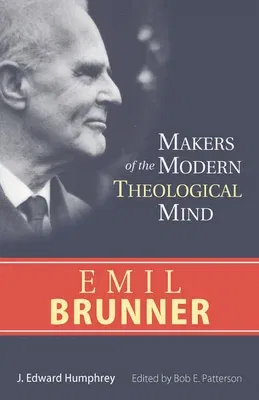Emil Brunner (1889-1966) is one of the "Three Bs" (Barth, Brunner, and
Bultmann) who shaped Christian theological studies in the twentieth
century. Brunner and Karl Barth are the undisputed champions of the
theological revival known as neo-orthodoxy, and the two of them did more
than any others to prepare for the resurgence of historical biblical
Christianity in the Western world today. Brunner was part of the
wrecking crew that dismantled the house of liberal theology with its
humanistic view of Jesus Christ, its optimistic view of man's goodness,
and its progressive idea of history as inevitably leading to the kingdom
of God.
The core of Brunner's theology was the coming of the infinite God to
finite man in the person of Jesus Christ. In this book, Dr. J. Edward
Humphrey sets forth and examines Brunner's doctrines of Christ and God,
his doctrine of sin and the need for personal faith, his doctrines of
the church as a fellowship and the place of revelation, and the Bible as
the norm for faith and practice. Brunner's great books on Christian
doctrine have manifested an unusual staying power, and Dr. Humphrey
helps us get at Brunner with insight, appreciation, and a critical
evaluation.
About the Makers of the Modern Theological Mind series
Who are the thinkers that have shaped Christian theology in our time?
This series tries to answer that question by providing a reliable guide
to the ideas of the men who have significantly charted the theological
seas of our century. Each major theologian is examined carefully and
critically--his life, his theological method, his most germinal ideas,
his weaknesses as a thinker, his place in the theological spectrum, and
his chief contribution to the climate of theology today. Welcome to the
series.

